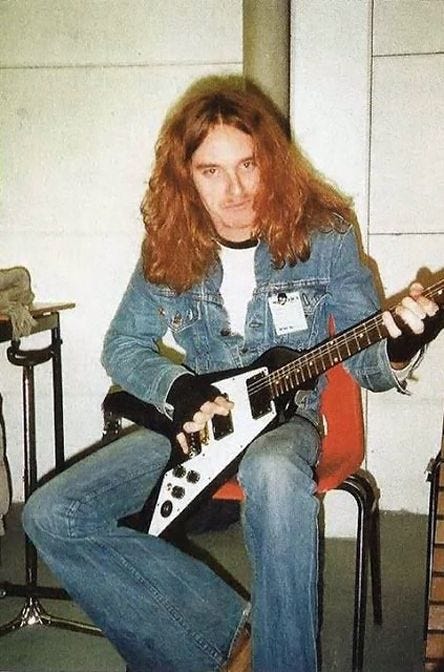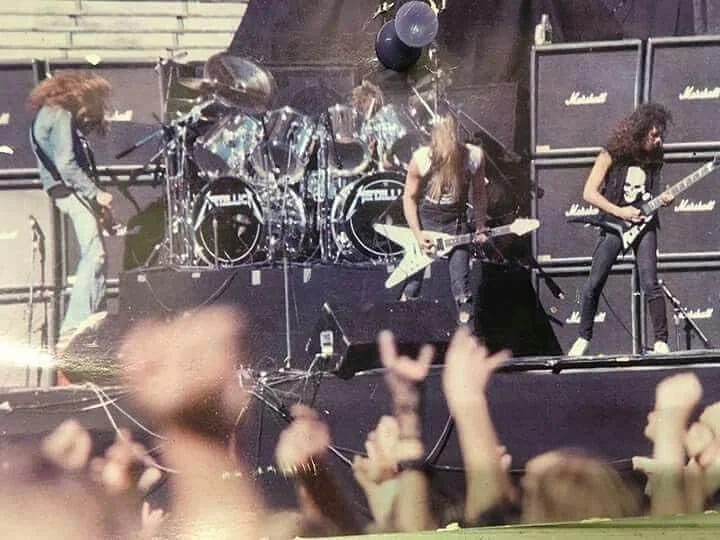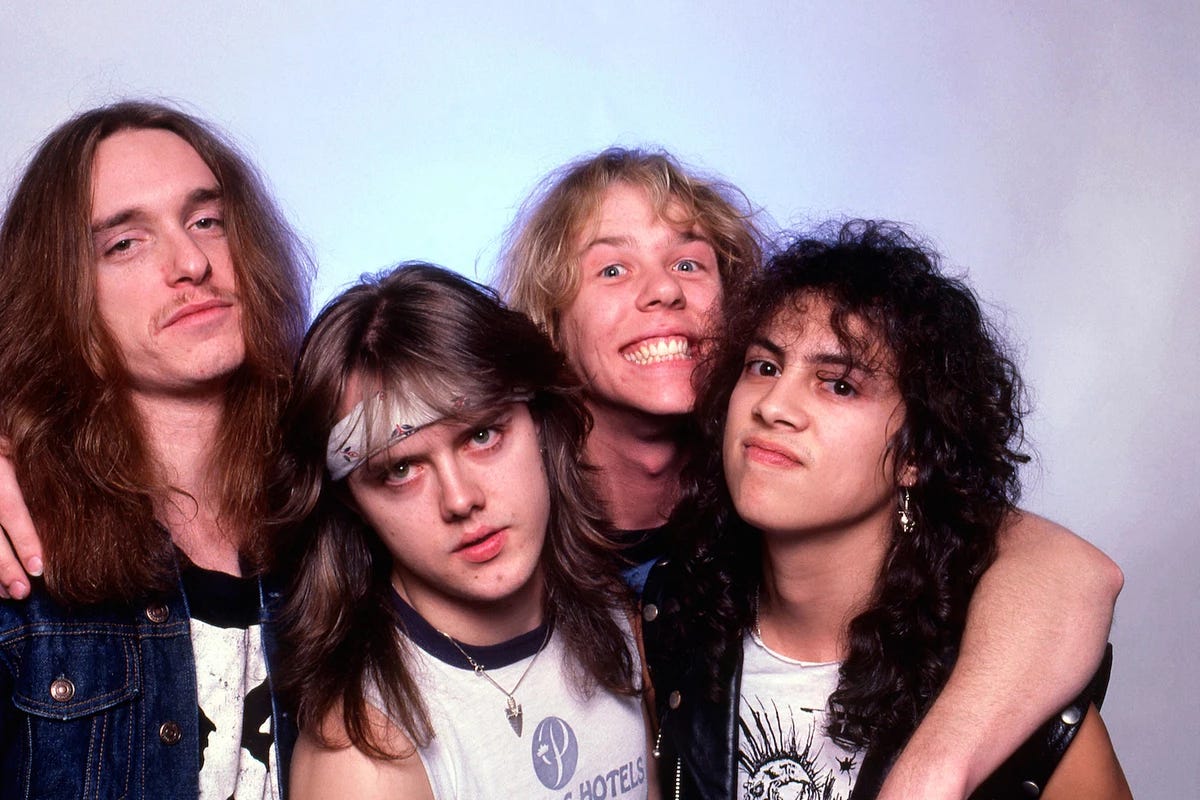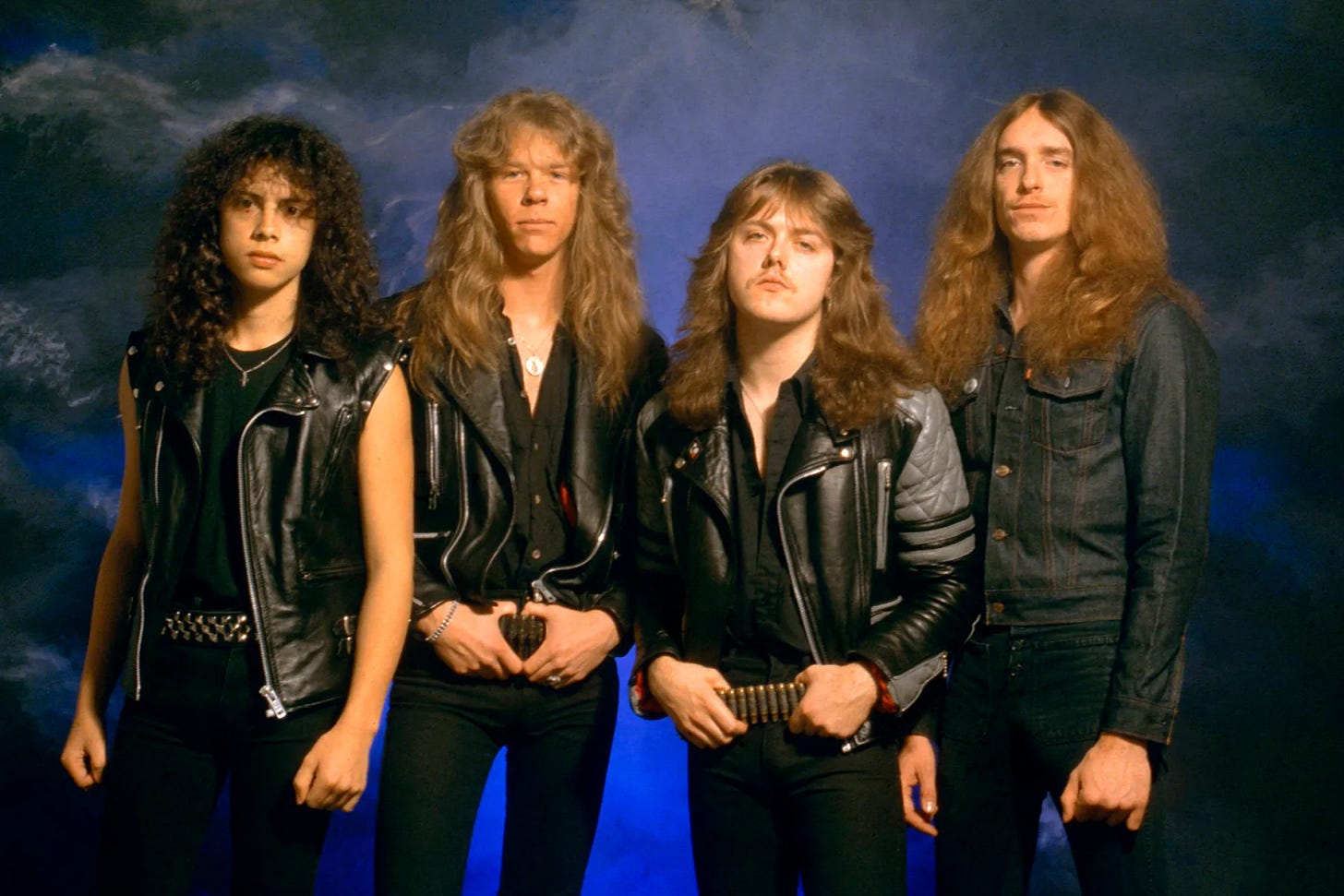Ride the Lightning 40 years on: An album that solidified the legacy of Metallica along with Thrash Metal.
With Metallica's Ride The Lightning turning 40, I wanted to take a look back on the iconic thrash album that changed metal forever
From the moment those 12 acoustic strings fade out and you’re thrown headfirst into the apocalyptically fast opening number of Fight Fire With Fire; the next 47 minutes of Metallica’s Ride The Lightning can only be described as one of the most iconic metal albums to this day despite it’s significant 40-year age. However, despite the historic run that was Metallica’s first three albums, Ride The Lightning always poses as the forgotten middle child between it’s far more iconic younger and older siblings, Kill Em All and Master of Puppets. Yet why does this continue to happen? Afterall, Ride The Lightning has a perfect mix of breakneck fast riffs along with complex harmonies and solos that set Metallica apart from the crowd very quickly and sealed their destiny as future superstars.
When you look back on the trilogy that was Metallica’s first three albums, there’s only one name that comes to mind, Cliff Burton, it’s virtually impossible not to think of him The late bassist had a deep knowledge of music theory and a knack for shredding his bass so effortlessly that it’s no wonder why they refer to the first three albums as the “Cliff era” of Metallica. Despite suffering the classic fate of a bassists (being buried in the mix) often Cliff doesn’t get the credit he deserves for how much he contributed to the band’s success in its early years, but RTL is a perfect example of how the musical mastermind helped propel Metallica right onto the track for success.
According to RTL album producer Fleming Rasmussen “While it was Lars and James that were more or less in charge, from an artistic point of view it would probably be Cliff” and that’s because not only could Cliff riff and solo like the others, but he had taken the time to fully learn and grasp musical theory to give Metallica’s music that extra replay value. It was clear that Cliff was the backbone of this album, and no one agrees more than the other members of the group. When asked about Cliffs influence on the project, Metallica drummer Lars Ulrich said: ‘Cliff affected us in a lot of ways with his open-mindedness. We’d never become the band we were without him… Ride The Lightning was giant Leap forward, Cliffs presence gave us a much bigger palette”, while lead guitarist Kirk Hammett said: ‘he had a much firmer grasp on musical theory and harmonies… He always wanted to harmonise everything… I remember working out guitar solos for Ride The Lightning… and I remember thinking “ok if I do it myself it’s going to take hours but if I get Cliff over here it’s going to take 15 minutes”’, but Cliff’s ability to regurgitate theory like it was second nature wasn’t the only feat for fans to marvel out when RTL released as it was through the hit track, For Whom The Bell Tolls that he gave his bass a much needed voice.

There’s numerous examples within the Cliff era of Metallica of how Cliff could absolutely murder a bass solo all you have to is go diving through some iconic RTL tracks such as The Call of Ktulu, Creeping Death and even the iconic bass solo Anesthesia on Metallica’s Kill Em All to see how talented he was but in my opinion, there’s no better example of giving the bass guitar a voice then the groups standout track, For Whom The Bell Tolls.
There’s a reason as to why For Whom The Bell Tolls stands tall as Metallica’s most popular song on RTL. As soon as you press play, the ringing of church bells creates an instantly cold atmosphere which is suddenly filled with the songs theme of impending demise until Burton comes crashing in with a riff forged of fuzz, wah and octaves to create a riff so menacing, it sounds as if you’re staring death straight in the face. I must admit then when I first heard it, I thought it was a guitar riff; it just sounded too cool for a bass. Until I watched a video of Cliff playing it live which was so jaw dropping that I bought my first bass a month later.

What also makes RTL so iconic is the time frame that it was published in. Little is mentioned of how 1984 was such a crazy year for metal; the sub-genre that we now know as thrash metal had just made its debut “explosion” onto the scene but the four scruffy punks of Metallica, who were fresh off their shoestring budgeted “Kill Em All For One” tour, had a gametime decision to make; either hunker down on their thrash roots and follow the trend of trying to play quicker than all the other bands, or branch out to a more universal sound in the hopes of clutching the success of their Idols. Despite seeming like a tough decision (to the dismay of a few die-hard metal heads) it was all made clear instantly on one fateful night.
Friday 13th of January 1984 was an unforgettable night for both good and bad reasons for Metallica. As the group pulled into Massachusetts ready for another night of caning it at a local sweatbox, thieves broke into the groups equipment fan and stole Lars’ drum kit, Cliffs effects pedals and Kirk and James’ Marshall amp cabinets. Understandably this was a major blow to the group’s momentum however, this was particularly impacting on frontman James Hetfield as his amp head was a gift from his late mother. Despite the upset, this terrible event birthed an unforgettable masterpiece as James picked up his acoustic guitar and began playing the main riff of what we now know as Fade To Black.
As mentioned previously the early days of thrash metal were pretty much a contest of who could play the quickest so for Metallica to write a seven-minute semi-acoustic suicidal ballad, this was far more than just different, this was seen as heresy as Jon Wiederhorn writes for Metal Hammer “Some purists were furious with the changes…Fade To Black was seen as an outright betrayal”. Yet despite the initial controversy, Fade to Black remains a fan favourite which Metallica still pull out at shows to this day.

RTL is far more than just the forgotten middle child of Metallica’s Cliff era. It was an album that marked a shift in thrash metal; long gone were the days of chaos, anarchy and trying to outplay everyone else. Metallica ushered in a new era of craftsmanship behind their music and unlocked a wider potential with their sound by playing slower as noted by Lars Ulrich who said ““When you’re playing fast all the time, you kind of limit what you can do musically’. Regardless of if you love it or hate it, what can’t be denied is that due to Metallica’s sophomore album Ride The Lightning, thrash metal was no longer a fad, it was here to stay.




